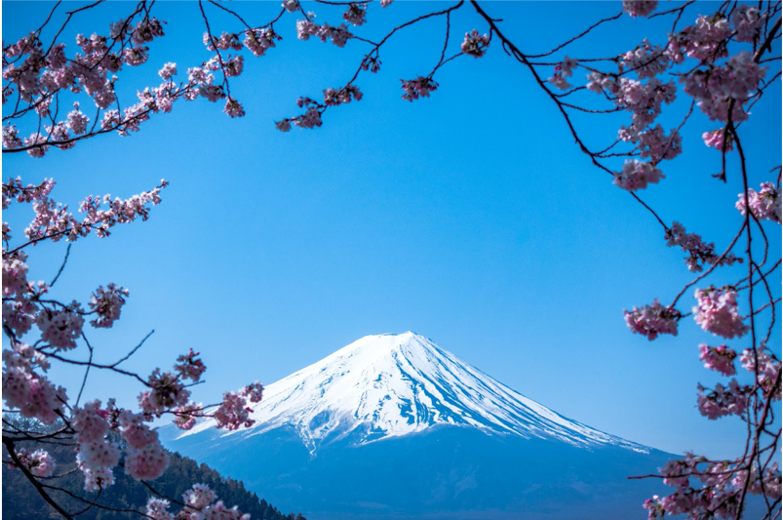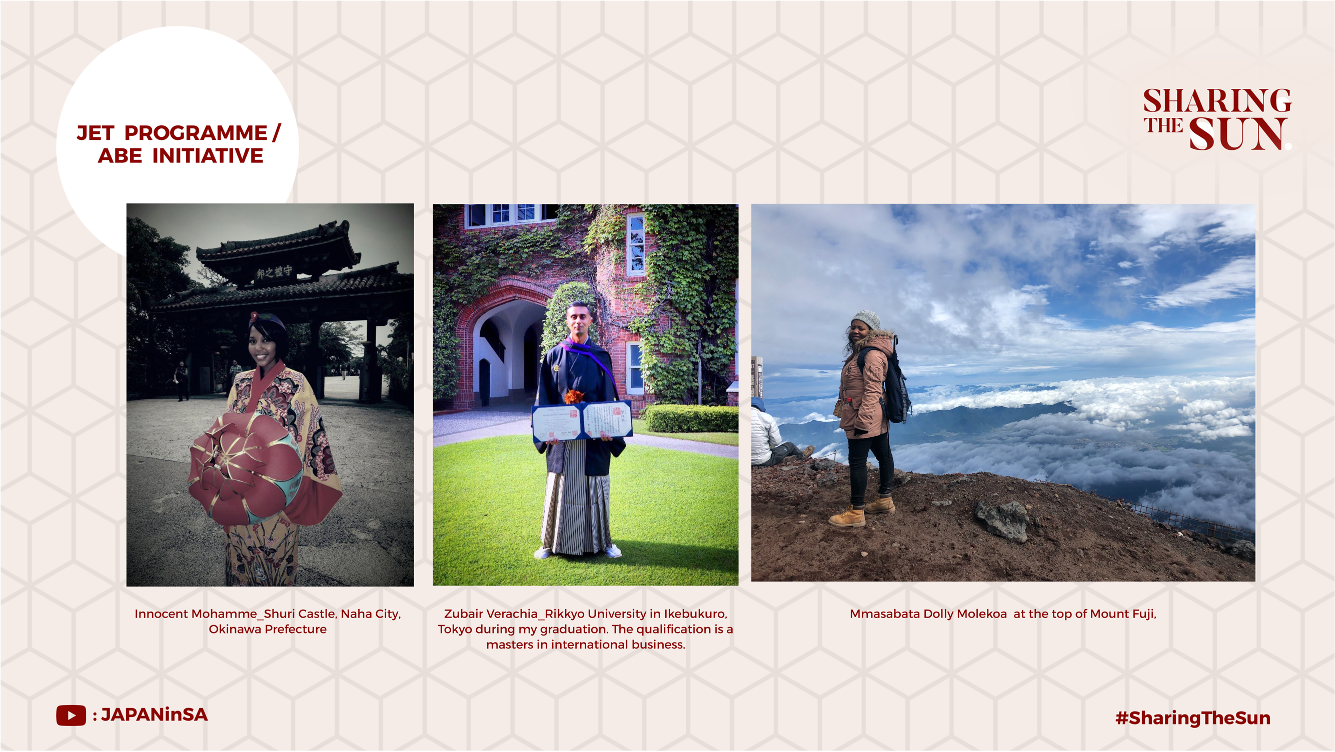
All about the Japanese government’s JET programme and ABE initiatives.
Innocent Mohamme never imagined she’d get a chance to visit Japan, but when she finished her psychology degree, she heard about a unique programme from a friend and was soon embracing the opportunity of a lifetime.
She applied for a spot on the Japan Exchange and Teaching (JET) programme and was soon winging her way halfway across the world to immerse herself in a completely new and exciting culture. The programme is open to graduates in any discipline.
During her year-long stay, she worked as an Assistant Language Teacher in five schools located on different islands in the Miyako island chain. These form part of the Okinawa Prefecture and are situated between the island of Okinawa and Taiwan. She was warmly welcomed by her hosts, who were very interested to hear about life in South Africa. And although she doesn’t speak Japanese, she managed to communicate very effectively through the teachers she worked with, all of whom spoke English, and by making frequent use of Google Translate!
Since the programme started in 1987, 5 761 people from 57 countries have participated, with about 700 of them coming from South Africa.

Mmasabata Dolly Molekoa, who hails from Limpopo, is a beneficiary of another Japanese-funded programme, the African Business Education (ABE) Initiative for Youth. The ABE Initiative gives graduates from countries throughout Africa the opportunity to further their studies in Japan and the scale of the programme is unprecedented in the history of Japan’s international cooperation.1
Based in the city of Sapporo on the northern island of Hokkaido, Mmasabata is studying towards a Master’s degree in Environmental Science, focusing on water quality management. Once qualified, she will have a highly sought-after skill in water-scarce South Africa!
She says that it was easy to adapt to life in Japan, even though people there are generally much quieter than folks back home. Like Innocent, she only knew a few phrases in Japanese when she applied for the programme, but did take a short course in conversational Japanese before she left South Africa. This has enabled her to ‘get by’ in stores and other social situations she says with a laugh.
She’s made a lot of friends from different countries and she’s travelled widely throughout Japan, immersing herself in both urban and rural culture. Her study programme ends in March 2021 and, after she graduates, she’ll serve a two-month internship in Japan before returning home.
Another ABE beneficiary, Zubair Verachia, who studied for a Masters in International Business at Rikkyo University in Tokyo, says he really enjoyed his stay in one the world’s mega cities, where there’s always something to do. Attending international concerts and seeing top-level art exhibitions was, he says, a fantastic part of the whole experience. He also loved participating in the seasonal festivals in Tokyo, including the world-famous Sakura (Cherry Blossom) Festival in the spring.
Launched at the fifth Tokyo International Conference on African Development (TICAD V) in June 2013, the aim of ABE Initiative is to give programme participants the opportunity to benefit from professional education at graduate schools throughout Japan, helping to form a skills backbone for the Africa of the future.
Click here to find out more about the JET Programme and ABE Initiative.
Tune in Embassy of Japan in South Africa’s webseries ‘Sharing the Sun’ which airs every Thursday on their YouTube Channel of JAPANinSA
Find the Embassy of Japan on Instagram, Facebook and Twitter.
1 “The ABE Initiative: Pilots of African Business”: https://www.mofa.go.jp/files/000469595.pdf



